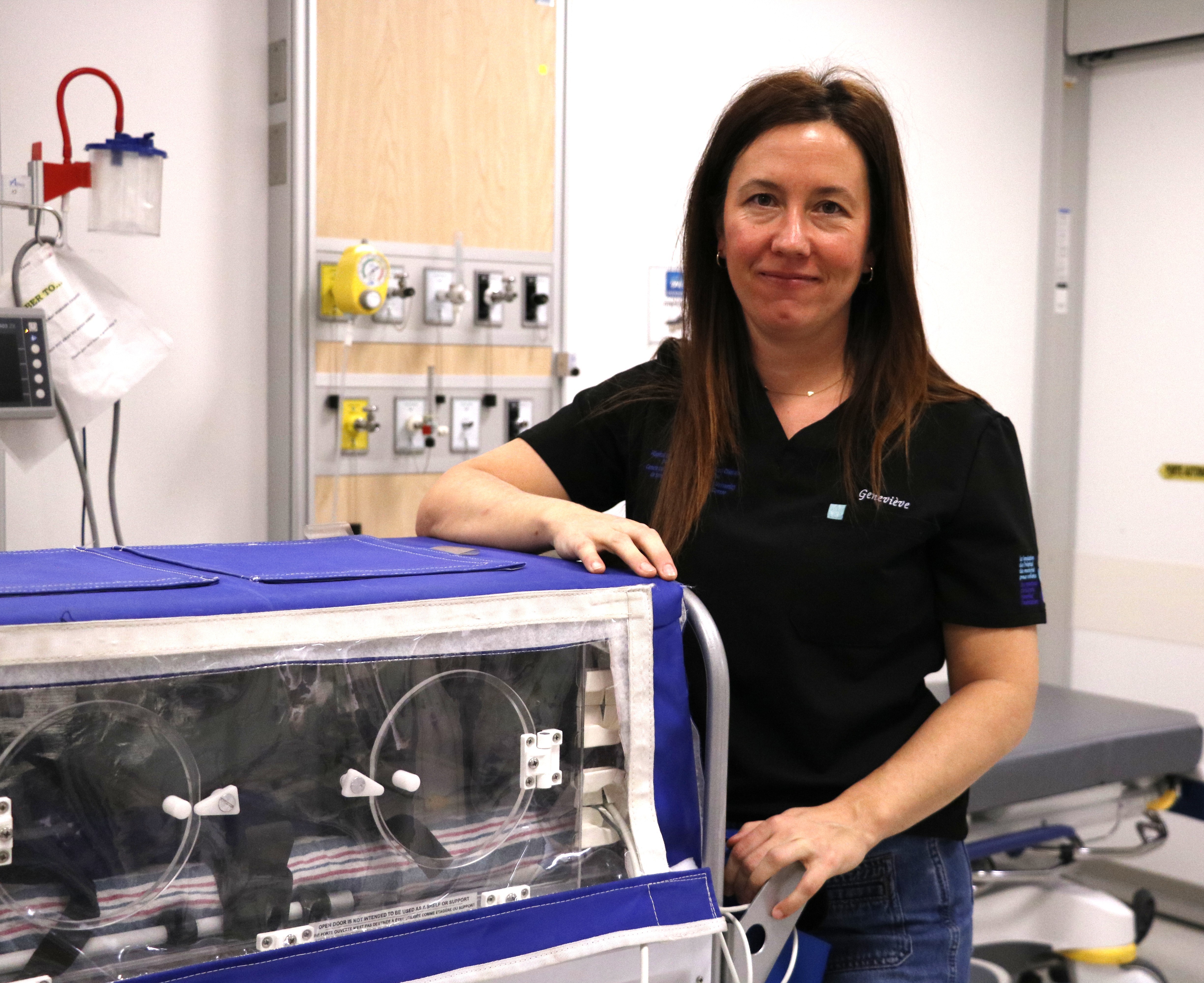
Celebrating Critical Care Transport Nurses at the MCH
18 February 2026
Rise in respiratory infections and measles outbreak: important infection prevention measures at the Montreal Children’s Hospital.
Read moreWelcome to the Montreal Children's Hospital

16 December 2014
FLU OR GASTROENTERITIS: WHEN TO AVOID VISITING AN EMERGENCY DEPARTMENT DURING THE HOLIDAYS
Montreal, Tuesday, December 16, 2014 – Every year as we approach the holiday season, Montreal hospitals must manage a higher volume of patient visits to their emergency departments. This time of year is known for get-togethers and gatherings of all sorts, which increases the number of flu and gastroenteritis cases in late December and early January. The majority of children and adults who visit Montreal emergency departments suffer from mild flu-like symptoms, gastroenteritis and fever. In addition to contributing to the spread of these viruses, this increased influx of patients causes significant pressure on emergency departments, increasing the waiting time for these non-urgent cases in particular.
Care at home : the best solution
“It is important that parents prepare for the flu season by learning how to prevent infection, how to care for minor illnesses and injuries at home and when to consult a doctor or go to the emergency department. Children who need urgent care are given priority. However, any patient presenting symptoms of a cold, the flu or gastroenteritis should expect to wait several hours to see a doctor in the emergency department. Whether you are a child or an adult, mild flu symptoms, gastroenteritis and fever — viruses whose symptoms usually last between 3 to 5 days — can be treated at home. Emergency services are reserved for those whose condition requires urgent care,” says Dr. Antonio D’Angelo, Medical Director of CHU Sainte-Justine’s Emergency Department. “If you have the flu, drink plenty of water and rest. You can also ask your pharmacist for advice to relieve your symptoms,” he adds.
“Preventive measures such as vaccination and the adoption of good respiratory etiquette are two of the most effective ways to reduce the number of unexpected visits to the emergency department and avoid the long wait times that accompany them during the busiest time of year,” says Dr. Harley Eisman, Director of the Montreal Children’s Hospital of the MUHC’s Emergency Department. “Avoid contributing to the spread of influenza and gastroenteritis by regularly washing your hands, covering your mouth when coughing, staying home when you are sick and avoiding contact with vulnerable people.”
Vaccination against influenza: simple, fast and effective
“The vaccine is a quick and easy way to prevent the flu. It’s the best protection against the virus and its complications, especially for those who are most vulnerable to infection,” says Dr. Alexandra Kossowski, Medical adviser in immunization at the public health department (DSP) of the Agence de la santé et des services sociaux de Montréal. A reminder that there is still time to get vaccinated in one of the many vaccination clinics. For a list of locations where you can get vaccinated, visit the portal: http://www.santemontreal.qc.ca/externe/hiverensante/en/.
Alternatives to emergency
If you are sick or worried about the health of a loved one, first call Info-Santé at 811. Info-Santé nurses are available 24/7 to advise you and tell you when and who to consult for health-related matters. You can also consult your family doctor, your local CSSS services or a network clinic to see a doctor without an appointment. Pharmacists are also excellent advisors.
For opening hours of network clinics and CSSS services in the Montreal area, you can visit the portal: http://www.santemontreal.qc.ca/externe/hiverensante/en/. CHU Sainte-Justine and the Montreal Children’s Hospital’s websites also offer tips and information allowing parents to better assess the health of their loved ones. Visit their websites at www.chusj.org, www.thechildren.com.
– 30 –
Source :
For more information :
Mélanie Dallaire
Stephanie Tsirgotis
Media Relations